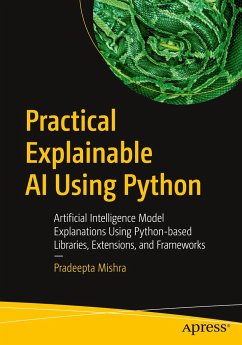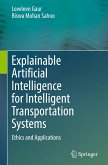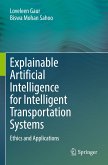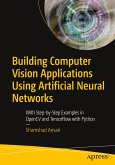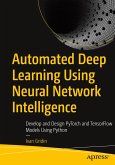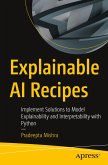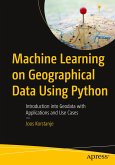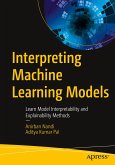Learn the ins and outs of decisions, biases, and reliability of AI algorithms and how to make sense of these predictions. This book explores the so-called black-box models to boost the adaptability, interpretability, and explainability of the decisions made by AI algorithms using frameworks such as Python XAI libraries, TensorFlow 2.0+, Keras, and custom frameworks using Python wrappers.
You'll begin with an introduction to model explainability and interpretability basics, ethical consideration, and biases in predictions generated by AI models. Next, you'll look at methods and systems to interpret linear, non-linear, and time-series models used in AI. The book will also cover topics ranging from interpreting to understanding how an AI algorithm makes a decision
Further, you will learn the most complex ensemble models, explainability, and interpretability using frameworks such as Lime, SHAP, Skater, ELI5, etc. Moving forward, youwill be introduced to model explainabilityfor unstructured data, classification problems, and natural language processing-related tasks. Additionally, the book looks at counterfactual explanations for AI models. Practical Explainable AI Using Python shines the light on deep learning models, rule-based expert systems, and computer vision tasks using various XAI frameworks.
What You'll LearnReview the different ways of making an AI model interpretable and explainableExamine the biasness and good ethical practices of AI modelsQuantify, visualize, and estimate reliability of AI modelsDesign frameworks to unbox the black-box modelsAssess the fairness of AI models
Understand the building blocks of trust in AI models
Increase the level of AI adoption
Who This Book Is For
AI engineers, data scientists, and software developers involved in driving AI projects/ AI products.
You'll begin with an introduction to model explainability and interpretability basics, ethical consideration, and biases in predictions generated by AI models. Next, you'll look at methods and systems to interpret linear, non-linear, and time-series models used in AI. The book will also cover topics ranging from interpreting to understanding how an AI algorithm makes a decision
Further, you will learn the most complex ensemble models, explainability, and interpretability using frameworks such as Lime, SHAP, Skater, ELI5, etc. Moving forward, youwill be introduced to model explainabilityfor unstructured data, classification problems, and natural language processing-related tasks. Additionally, the book looks at counterfactual explanations for AI models. Practical Explainable AI Using Python shines the light on deep learning models, rule-based expert systems, and computer vision tasks using various XAI frameworks.
What You'll LearnReview the different ways of making an AI model interpretable and explainableExamine the biasness and good ethical practices of AI modelsQuantify, visualize, and estimate reliability of AI modelsDesign frameworks to unbox the black-box modelsAssess the fairness of AI models
Understand the building blocks of trust in AI models
Increase the level of AI adoption
Who This Book Is For
AI engineers, data scientists, and software developers involved in driving AI projects/ AI products.
"Practical explainable AI using Python combines textbook and cookbook elements. It provides explanations of concepts along with practical examples and exercises. ... this book offers a comprehensive foundation that will remain relevant for some time. However, readers should supplement their knowledge with the latest research in order to stay up to date in this dynamic field." (Gulustan Dogan, Computing Reviews, August 21, 2023)
"While the book presents just fundamental aspects, I find this to be a great advantage. Indeed, even the layperson to AI/ML can use this work: the author starts with the most basic definitions and models, and then provides software examples ... . This way a very broad readership is possible, since more advanced parts of the chapters will be interesting even for specialists in AI/ML who would like to increase their expertise in the title topic." (Piotr Cholda, Computing Reviews, April 17, 2023)
"While the book presents just fundamental aspects, I find this to be a great advantage. Indeed, even the layperson to AI/ML can use this work: the author starts with the most basic definitions and models, and then provides software examples ... . This way a very broad readership is possible, since more advanced parts of the chapters will be interesting even for specialists in AI/ML who would like to increase their expertise in the title topic." (Piotr Cholda, Computing Reviews, April 17, 2023)

